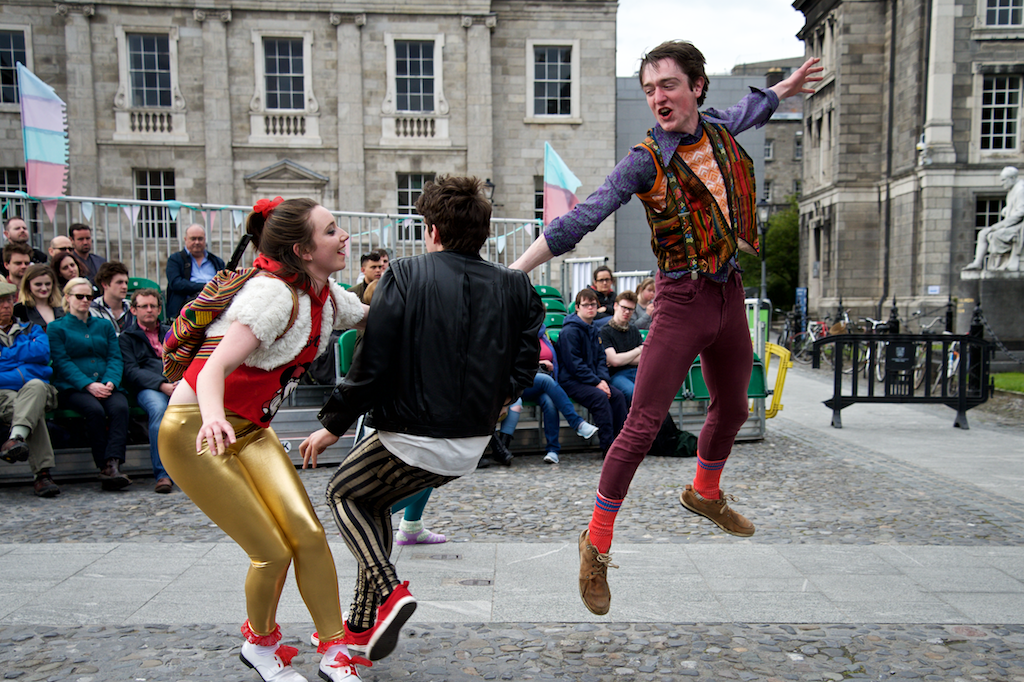
Mythfest, DU Players’s second annual celebration of international myths, runs until June 7th and aims to give a contemporary audience a chance to experience classic folklore and mythology in a variety of settings and styles. It is fitting, then, that its headline show, The Unquiet Hour, perfectly embodies these aims.
A devised piece directed by Ciara Fleming, written by Will Penswick and inspired by Yeats’s collection Fairy and Folk Tales for the Irish Peasantry, it concerns the interactions between the human and fairy worlds. The play centres on several fairies as they attempt to negotiate the divide between the two worlds. These fairies are given flawed and human portrayals by the extremely talented ensemble of actors. The humanisation of these fantastical creatures makes them more relatable for the Mythfest audience.
The struggles of these sprites are brought to lyrical life by the Yeats-inspired language of Will Penswick. Penswick’s language is effortlessly and unselfconsciously poetic, never veering into easy cliche or oversimplification. This creates an ethereal atmosphere which is enhanced by the pitch perfect musical accompaniments of the cast. Richard Durning’s compositions are never intrusive and at their best are inseparable from the action taking place.
Ciara Fleming’s direction keeps a progressive pace and her movement sequences are especially evocative. This is helped by an energetic and committed cast who brought life to their characters. Of particular note is Martha Grant whose intense performance gave an added depth to her character. Likewise, Jimmy Kavanagh’s earnest performance allowed the audience to connect emotionally with his troubles. While the other actors maintain an otherworldly aura, Eavan Gaffney provides a more naturalistic performance which allows the audience to empathise with her human struggles amid the problems of immortals.
Although Will Penswick’s script is extremely pleasant to listen to, it is at times slightly dense. This can occasionally lead to confusing sequences concerning the origin and purpose of fairies. Different fairies appear to have different roles, although these roles are not fully comprehensible. Perhaps a more streamlined explanation of the nature of fairies would have eliminated this problem.
The design of the production was perfectly appropriate to the story. The choice of location (in front of the campanile, with a green area on the far side) illustrated the divide between the two worlds. The costumes were vibrant without being distracting and each one was excellently tailored to the characters and reflected their relationships with other characters. The props used were minimal and mainly used for the purpose of musical accompaniment.
The Unquiet Hour and Mythfest itself act as a bridge between the real and supernatural worlds. In a well-paced and aurally and visually appealing production, the team of The Unquiet Hour embody this aim.
The Unquiet Hour runs until Sunday, June 7th, every day at 7pm in Trinity’s Front Square. Tickets range from €5–€15, and can be purchased here.
Mythfest itself runs until the same date, and all other performances are free to the public.






